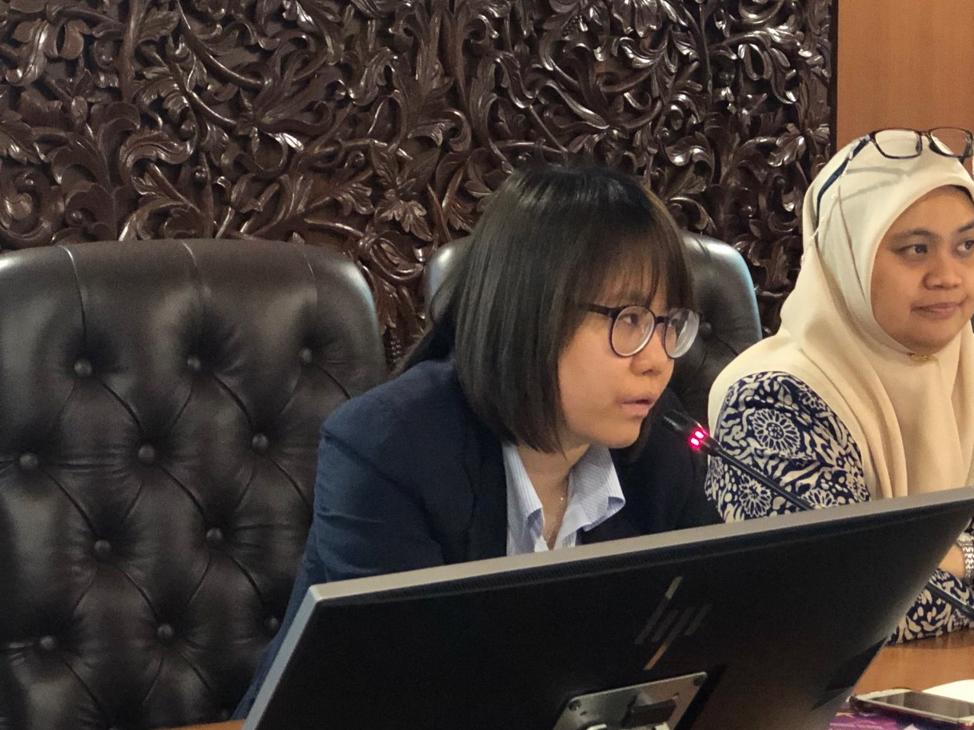KUALA LUMPUR, July 15 — Cancer advocates demanded the reversal of a regulation that imposes first class rates on patients at Ministry of Health (MOH) hospitals who are referred from private or university hospitals.
National Cancer Society of Malaysia (NCSM) health education manager Mandy Thoo acknowledged that Health director-general Dr Noor Hisham Abdullah said last April that patients referred from private facilities could choose treatment at third class wards at MOH hospitals and get charged accordingly.
But she said the issue was still unresolved, as cancer patients remained wary of consulting doctors in the private sector because they feared getting charged first class rates at MOH facilities if they sought further treatment there after.
“This issue is not really clarified,” Thoo told a parliamentary briefing for MPs last Wednesday on cancer organised by Klang MP Charles Santiago together with the Galen Centre.
“We ask that the Fees (Medical) (Amendment) Order 2017 be reversed. Patients, regardless of where they’re referred from, private or public, should have the option to pay for whichever class of treatment they want.”
She said the 2017 regulation forced MOH patients who are referred from private facilities to pay first class rates not only for treatment, but for medication too.
This comes even as a 2015 study by Dr Nirmala Bhoo Pathy, associate professor at the Faculty of Medicine, Universiti Malaya, shows that half of households in Malaysia with a cancer patient encounter financial “catastrophe”, where they spend more than 30 per cent of their income on expenses related to the illness, both medical and non-medical.
According to the Fees (Medical) (Amendment) Order 2017, a one-bedded first class general ward is charged at RM120 per day, 40 times more expensive than RM3 for a third class ward.
Rates differ for radiotherapy and oncology treatment at MOH hospitals too; targeted therapy, for example, is charged RM600 under the first class rate, 12 times more expensive than the third class fee of RM50. Outpatient targeted therapy treatments that are referred from a private practitioner is charged RM600, four times dearer than RM150 for referrals from a government medical officer.
Thoo pointed out that cancer patients who get diagnosed and treated early at private facilities were helping to clear the bottleneck in government hospitals, besides reducing the country’s health care costs.
“Yet somehow, they’re penalised for going to private first,” she said. “Don’t continue to penalise patients who are proactive and merely exercising their right to access health care.”
“We ask that the Fees (Medical) (Amendment) Order 2017 be reversed. Patients, regardless of where they’re referred from, private or public, should have the option to pay for whichever class of treatment they want.”
Breast Cancer Welfare Association Malaysia president Ranjit Kaur said cancer patients with a “small amount of money” opt to do surgery at private hospitals because they cannot wait long at government facilities to undergo their first treatment.
“So if they go to private hospitals to get surgery done, then for the remaining treatment, MOH hospitals penalise them by making them pay higher rates, ‘padan muka’ (serves you right). Charge first class but treated as third class. I think that is not fair,” Ranjit said at the briefing.
“Patients should choose. If she’s a factory worker and has savings and went for surgery [in a private hospital], and wants to continue further treatment at an MOH hospital, she should be treated like any other person in the population and be given the choice if she wants first class, or second or third class.”
Ranjit also complained about the government excluding patients and non-government organisations (NGOs) from national cancer control plans and policies.
“We’re based in the grassroots. We hear real stories of patients who are afraid to complain in a hospital. They know they’ll be victimised, so they dare not make any complaints. We’re the ones giving you the complaints,” said the breast cancer survivor.
Ong Mei Ching, regional director of cancer non-profit The Max Foundation, said many chronic myeloid leukaemia patients could not start treatment immediately after getting diagnosed because of a lack of drugs in the public sector due to budget constraints.
“We should actually open the table and talk about how can we creatively come up with another solution; it’s not just to stop people from starting treatment just because of the budget,” said Ong at the parliamentary briefing.
“We keep hearing that we need to be diagnosed early. Yes, but then people are stuck. You tell people — you have this cancer, we have drugs, but it’s not yours because you are patient number 251 being diagnosed. So you have to wait until somebody dies to get into place.”








